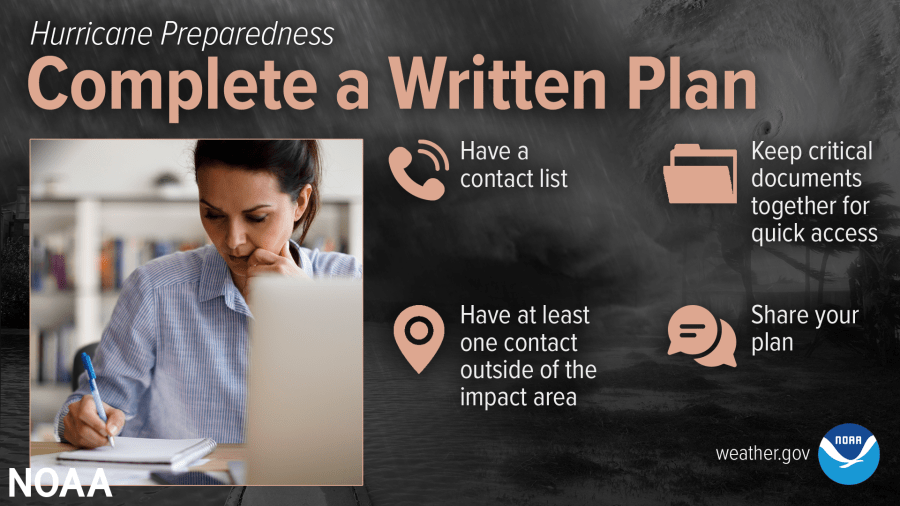(WGNO) — The 2023 Atlantic hurricane season is less than a month away and the National Hurricane Center wants you to get ready.
It only takes one storm to change your life and community. This week, you are encouraged to determine your personal hurricane risk, find out if you live in a hurricane evacuation zone, and review your insurance policies.
It is also recommended that you make a list of items to replenish hurricane emergency supplies and start thinking about how you will prepare your home for the coming hurricane season.
During Hurricane Preparedness Week, each day focuses on a different preparation topic.
Sunday: Determine Your Risk
The threats from hurricanes to you and your family can vary widely depending on where you live. It’s not just those along the coast that can experience significant, life-threatening impacts. Evaluate what you need to do to protect your home and family now, before the first storm of the season even forms.
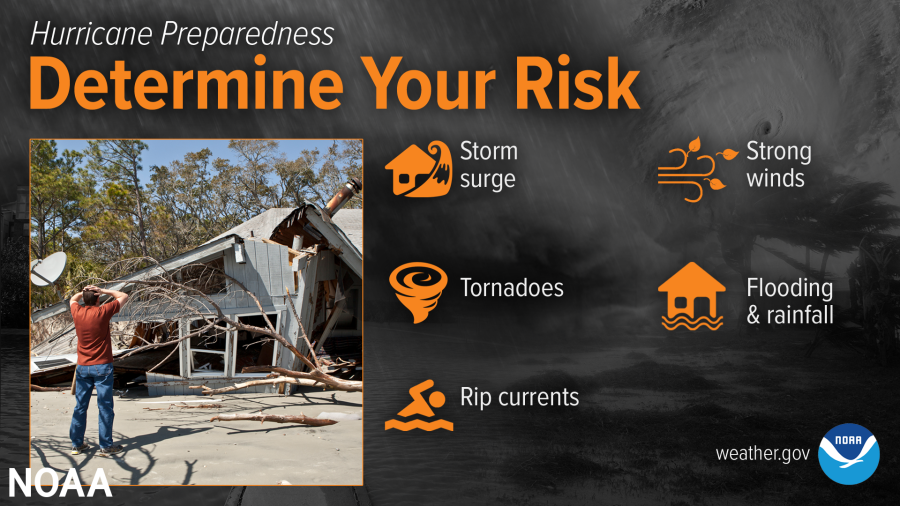
Monday: Develop an Evacuation Plan
Take some time this week – Hurricane Preparedness Week – to make sure you have a hurricane evacuation plan. The first thing you need to do is find out if you live in a storm surge hurricane evacuation zone or if you’re in a home that would be unsafe during a hurricane. If you are, figure out where you’d go and how you’d get there if told to evacuate. You do not need to travel hundreds of miles. Identify someone, perhaps a friend or relative who doesn’t live in an evacuation zone or unsafe home, and coordinate with them to use their home as your evacuation destination. Be sure to account for your pets, as most local shelters do not permit them. Put the plan in writing for you and those you care about.
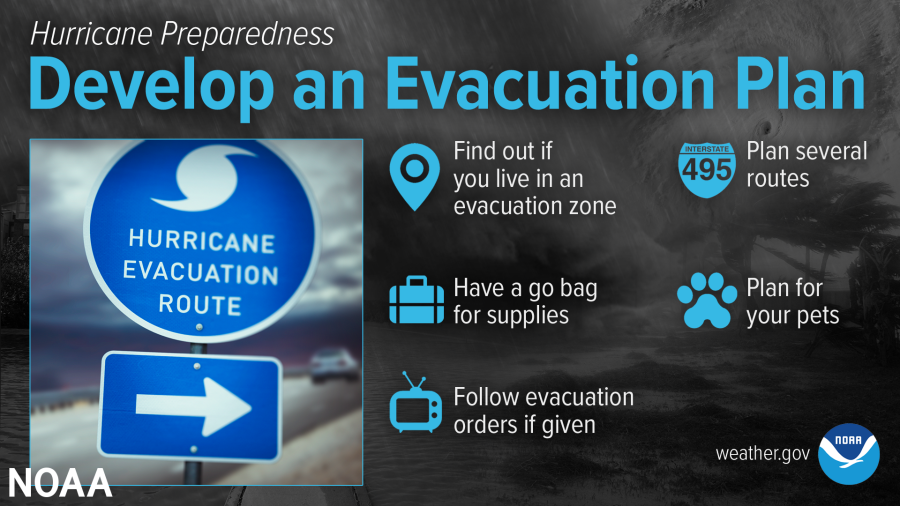
Tuesday: Assemble Disaster Supplies
Just having enough supplies to make it through a hurricane isn’t enough. You need plenty to make it through what could be a long recovery period too. Water and electricity could be out for a week or more. Have enough non-perishable food, water and medicine to last each person in your family for a minimum of three days. Also make sure you have extra cash, a battery-powered radio, flashlights, and a portable crank or solar powered USB charger to charge your cell phone.
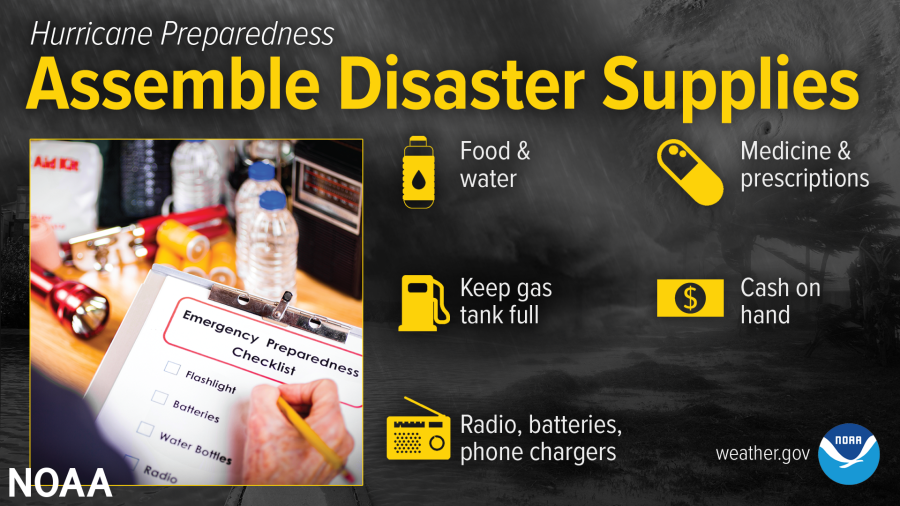
Wednesday: Get an Insurance Checkup
This Hurricane Preparedness Week, call your insurance company or agent and ask for an insurance checkup to make sure you have enough homeowners insurance to repair or even replace your home…and remember, standard homeowners insurance doesn’t cover flooding. Whether you’re a homeowner or renter, you’ll need a separate policy for flooding. Act now as flood insurance requires a 30-day waiting period.
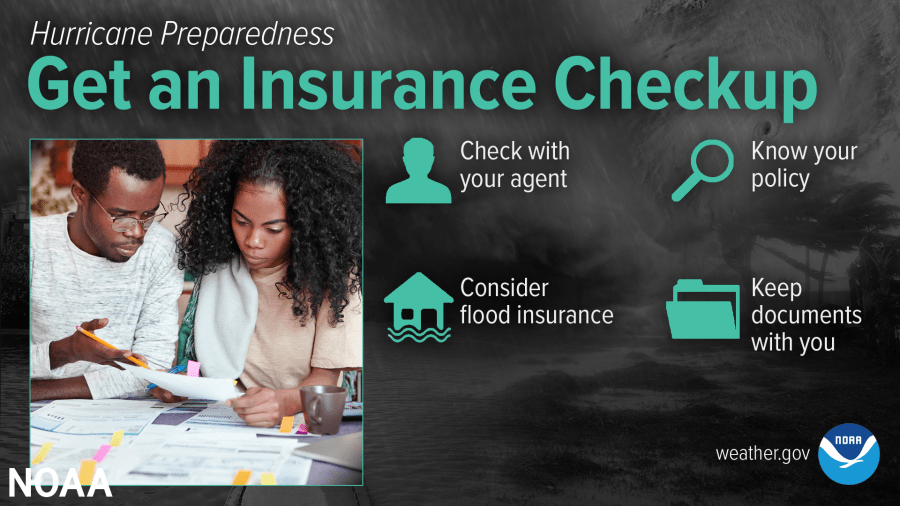
Thursday: Strengthen Your Home
There’s a lot you can do around your home to help protect it from hurricane winds. Take action now before hurricane season begins. Have the proper plywood, steel or aluminum panels to board up the windows and doors. Remember, the garage door is the most vulnerable part of the home, so it must be able to withstand high winds.
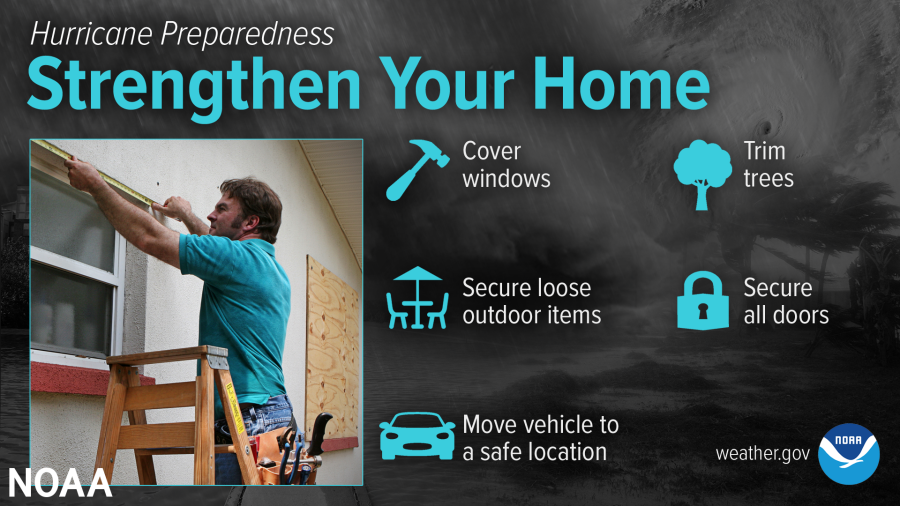
Friday: Help Your Neighbor
Many people rely on their neighbors after a disaster, but there are also many ways you can help your neighbors before a hurricane approaches. Learn about all the different actions your community can take to prepare and recover from the hazards associated with hurricanes: ready.gov/neighbors.
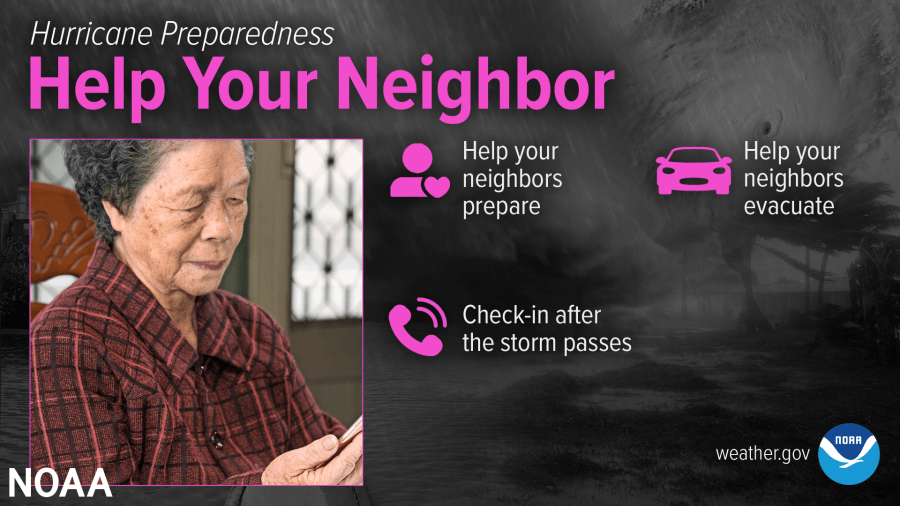
Saturday: Complete a Written Plan
The time to prepare for a hurricane is now, before the season begins. Once you’re under pressure, having a written plan will take the guesswork out of what you need to do to protect you and your family.
Know where you will ride out the storm and get your supplies now. You don’t want to be standing in long lines when a Hurricane Watch is issued. Those supplies that you need will probably be sold out by the time you reach the front of the line.
Being prepared now will mean the difference between your being a hurricane victim and a hurricane survivor. ready.gov/make-a-plan.
